
Marina Lenk is an experienced Ornamental Jumping athlete. However, an attack of Tinnitus — an unbearable ringing sound in the ears — drags her from the top of her game to the edge of madness.

Antônio Pitanga
Brazil has a long tradition of coup d'états. These coups would have not been viable without the support of the big media, particularly TV Globo. Two Brazilian journalists in the UK reveal the manipulative tactics of these organisations.
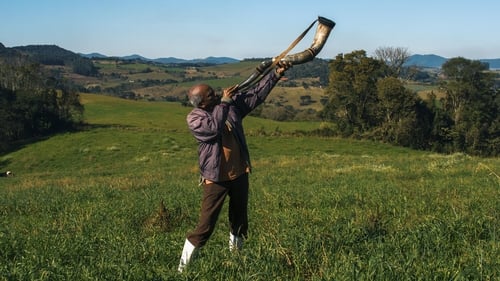
Cristovam
An older man begins to work in a modern dairy factory. He feels distant and does not identify with the place, the people and even the society. Little by little, he is approaching cows and oxen, transforming into an animal and returning to his ancestry.
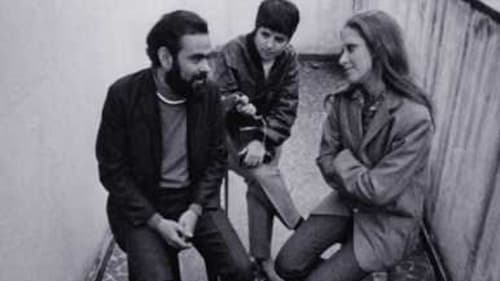
An authentically marginal cinema created in Catholic university in Brazil. One of the most intriguing and imaginative moments in modern cinema in the voice of some of its select conspirators—with Carlos Reichenbach at the lead—, and through the most razing flow of images that can possibly be conceived.

In 1965, a year after the military coup in Brazil, an oasis of freedom opened in the country's capital. The Brasília Film Festival: a landmark of cultural and political resistance. Its story is that of Brazilian cinema itself.

Self

Yoyo
"A Day with Jerusa" follows Silvia, a young, mediumic market researcher facing the hardships of underemployment while awaiting the result of a public exam, and Jerusa, a gracious 77-year-old lady, eyewitness to the daily life on Bixiga, a neighborhood filled with ancestral memories. On Jerusa's birthday, while she waits for her family's arrival, the encounter between her deepest memories and Silvia's mediumship allows them to travel through time and realities common to their ancestry.

Jérèmie Valés

What does Brazilian cinema tell us? What does Brazilian cinema tell us about black actresses and actors? ‘Pressed, Ripped Apart’ makes use of archival sources to retrieve the trajectory of black actresses and actors who, between absences and delimited presences, between the fallacy of a racial democracy – based on the harmony among Brazil’s diverse identities – and erasure of identity, strain the history of Brazilian audiovisual and above all, our own history.
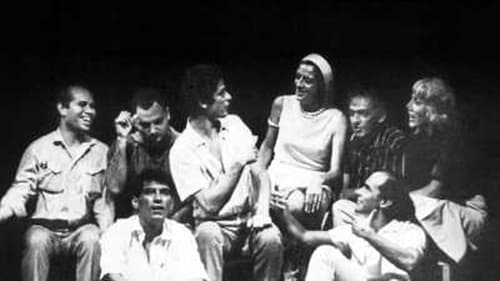
Himself
Follows the story of Opinião, a theatre group created in 1964 during the early Brazilian dictatorship period to oppose the government through artistic performances. Considered the first left-wing response to the dictatorship, the group gathered now famous Brazilian artists such as Nara Leão, Maria Bethânia, João do Vale and Millôr Fernandes.

The owner of a record store, amid a purchase of second-hand LPs, is faced with something that goes far beyond a trivial acquisition.

Vidigal Hill, 1977. A runaway group of bandits engage in a complex love triangle in the brink of the news that the corrupt Rio de Janeiro mayor decided to make everyone move out of Vidigal, aided by police forces.

Barravento Novo depicts correspondences between Antônio Pitanga—a Cinema Novo actor seen here delivering lines from Glauber Rocha’s first feature, Barravento, from 1962—and his daughter, Camila Pitanga, a well-known actor and filmmaker working today.

Ele mesmo
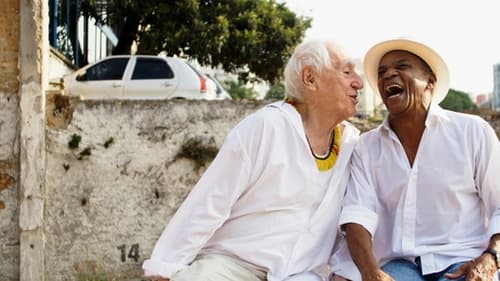
Self
This documentary investigates the aesthetic, political and existential trajectory of emblematic Black Brazilian actor Antônio Pitanga. He career spans over five decades, and he has worked with iconic Brazilian filmmakers Glauber Rocha, Cacá Diegues and Walter Lima Jr. He was a prominent figurehead and outspoken activist during the Brazilian dictatorship, a period of unrest in Brazilian cinema. Pitanga deep dives into the world of Antônio and the history of Brazil. The documentary was directed by his daughter Camila Pitanga, one of widely recognised faces in Brazilian television and cinema right now. The film is also a poem, and a tender ode to fatherhood.

Seu Capô
A once-rich family of women in Rio de Janeiro must sell their mansion in order to keep their high standard of living, but the proximity to the slums disrupts business.

Pai de Joãzinho
Zézé Gamboa's sardonic historical drama follows a good-hearted, apolitical con man who, on the eve of Angolan independence in the mid-1970s, pulls off a massive swindle at the expense of the Portuguese colonial administration — and soon after finds himself hailed as a hero of the national liberation struggle.

Pai Pedro de Oxum Aiê
Flávio is a filmmaker who was famous during the 1970s, but who's now forgotten by the public. Urging to become relevant again, he's willing to try everything, even by methods in which he doesn't believe. A supernatural debt, however, may be compromising his career.

Himself
Recalling the films "Sol Sobre a Lama" and "A Grande Feira", which portrayed the living conditions of Bahian society in the 1960s, the scenario was the Feira de Água de Meninos that was set on fire. Today the Feira de São Joaquim and its marketers live situations similar to those of the Cinema Novo films, in parallel they wait with hope for the beginning of the revitalization and expansion of the largest open market in Bahia.

Geronimo

Pastor Isaías
Set in a small town in Pará in the heart of the Amazon, Cauby makes a living as a photographer. Soon he’ll befriend pastor Ernani’s attractive wife Lavínia and embark on an affair – a good portion of the film is dedicated to their passionate relationship. We will also learn of Lavínia’s baggage from her past – how she met her husband, her continuing love for him, and his supportive role. But when rumours of her affair with Cauby circulate, the conservative community do not look at it kindly, leading to tragedy, and their lives will never be the same afterwards…
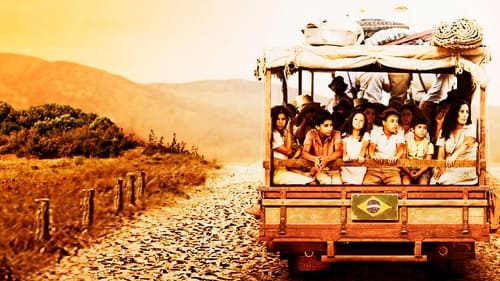
Seu Cristóvão
The true story of a working class boy who moves to the nation's financial capital at a young age and becomes one the most influential politicians in Brazilian history.

Preto Velho
After being forced into a marriage and enduring a humiliating work routine in the hands of his father-in-law, Zé Araújo becomes the mythical Ojuara, an unconventional hero devoted to debauchery.

A coming of age story about a boy in RIo de Janeiro, Brazil who, after his father's death, finds out about his family and where he came from.

Policial gentil
Covering the last years of the famous Brazilian fashion designer in her doomed quest for justice, Zuzu Angel follows the case of her activist son Stuart's arrest, torture, murder, and subsequent corpse disposal by the military forces in early 1970s Rio de Janeiro, during the darkest era of Brazilian military regime and media censorship.

Calunga

Seu Aurélio
Aurélia, a young black woman who works at a factory and lives in a working-class neighborhood in São Paulo, is seeing Fábio Tavares, who gets involved with a racist neo-nazi group.
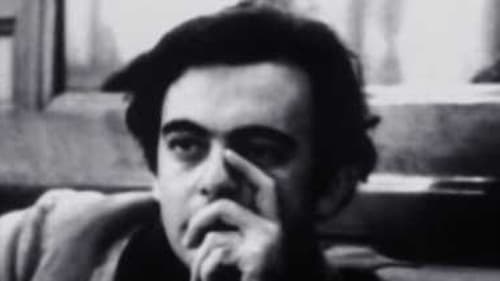
Documentary about Brazilian filmmaker Glauber Rocha, one of the most important names in the Cinema Novo, with interviews with some of his friends and colleagues.

Coice
Apolônio Brasil was a pianist at a famous nightclub in Rio de Janeiro, from the 1950s until his untimely death. Quite a character, Apolônio was loved by women and idolized by his audience and friends. His contagious joy attracts the attention of American scientist Dr. Boris Lewitsky, who comes to Brazil in order to interview Apolônio's close friends and make them a most unusual offer concerning the remains of the late musician.

Joaquim
The film tells the story of an intuitive, adventurous man who loved his country and being Brazilian. This man fought to be loyal to himself. His music is a transparent portrait of his genius, intuition, freedom, adventure and passion for Brazil.

The ideological conflict between Joaquim Bolívar, a young barber member of the Communist Party and the powerful Coronel Gaudêncio, a typical province political leader.

Valentim
A movie about a Brazilian entrepreneur who rivalled American's richest man at his time, well-known Rockfeller. Irineu Evangelista de Souza in 1867 had $155.000 contos de reis, meanwhile the Brazilian Governement annual budget was 97.000 contos de reis. The movie shows his life from poverty to riches and back to poverty again, as is common in Brazil, rich people die poor.

A comedy addressing the issues of being single in Rio de Janeiro.

Self
"Portraits and excerpts from Brazilian films from all times. Actors, directors and images that affirm cinema."

Drunk at the Party
When Cunda, a man living deep in the Brazilian rainforest, is bitten by a snake, he has a hallucination of four chimpanzees. Once he recovers, he is shocked to find the four chimpanzees waiting for him at home, and, believing them to be special, decides to take them to the city in order to sell them.

In an overcrowded prision cell, each man has to make his own way and secure himself from the constant threat of sexual violence coming from the rest of the inmates.

Dede (Guilherne Fontes) is a Brazilian teen who lives with his middle-class grandparents who are members of the local communist party. When his grandmother dies, his grandfather's health soon fades to the point where he can't speak or walk. The local party officials ask Dede to continue to family tradition and take over his grandfather's position of social authority, but when Dede is introduced to cocaine by his best friend Alpino (Marcos Palmeira), the attraction to drugs is more appealing to him than political activism.

Herculano
Eternamente Pagu is a biographical film about Patrícia Galvão, best known as Pagu, a Brazilian political, literary and artistic activist. An important figure of the Brazilian Modernism, Pagu was also a militant for the Brazilian Communist Party after she married writer Oswald de Andrade. She broke up with Andrade and, as a journalist was arrested by the Dictatorship of Getúlio Vargas. After she left prison, she abandoned Communism in favor of Trotskyist Socialism, married Geraldo Ferraz, and started a career as theatre director.

Cristobal
In an old and mysterious tropical mansion cohabit the supposed owner, a friar, a convalescent pilot, the Haitian servant, the mercenary guardian and the Machiche, a mature and dominant female. A young model arrives there to unleash all kinds of passions.

Geraldão
Two friends get rich running an illegal gambling business. But soon they start to compete, and become rivals.

Galanga, king of Congo brought to Brazil as a slave, finds gold in Vila Rica, in the State of Minas Gerais, and buys his enfranchisement, the properties of his former owner, and his companions' freedom, becoming Chico Rei, the first black man to own lands in Brazil.

Assistant Director
Quilombo dos Palmares was a real-life democratic society, created in Brazil in the 17th century. This incredibly elaborate (and surprisingly little-known) film traces the origins of Quilombo, which began as a community of freed slaves. The colony becomes a safe harbor for other outcasts of the world, including Indians and Jews. Ganga Zumba (Toni Tornado) becomes president of Quilombo, the first freely elected leader in the Western Hemisphere. Naturally, the ruling Portuguese want to subjugate Zumba and his followers, but the Quilombians are ready for their would-be oppressors. The end of this Brave New World is not pleasant, but the followers of Zumba and his ideals take to the hills, where they honor his memory to this day. Writer/director Carlos Diegues takes every available opportunity to compare the rise and fall of Quilombo with the state of affairs in modern-day Brazil.

Acaiuba
Quilombo dos Palmares was a real-life democratic society, created in Brazil in the 17th century. This incredibly elaborate (and surprisingly little-known) film traces the origins of Quilombo, which began as a community of freed slaves. The colony becomes a safe harbor for other outcasts of the world, including Indians and Jews. Ganga Zumba (Toni Tornado) becomes president of Quilombo, the first freely elected leader in the Western Hemisphere. Naturally, the ruling Portuguese want to subjugate Zumba and his followers, but the Quilombians are ready for their would-be oppressors. The end of this Brave New World is not pleasant, but the followers of Zumba and his ideals take to the hills, where they honor his memory to this day. Writer/director Carlos Diegues takes every available opportunity to compare the rise and fall of Quilombo with the state of affairs in modern-day Brazil.

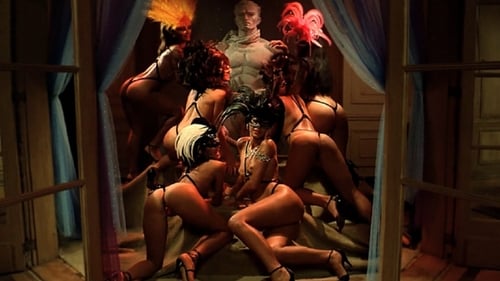
Bira
A public relations man is invited to guide an American millionaire during his stay in Rio de Janeiro. He gets involved in the most bizarre situations, from orgiastic mega-parties to confrontations with the police, meetings with drug dealers and movie stars, facing corruption and even murder.

César
Fantasy comedy about Brazilian writer Oswald de Andrade, one of the most important icons of Modernism in Brazil. In the film, Oswald is played by two actors: Ítala Nandi, as his feminine anima, and Flávio Galvão, as the masculine half.

Cristo Negro
Four Third-World Christs try to stop the American industrialist John Brahms in Glauber Rocha's experimental film inspired by Pier Paolo Pasolini's murder.

Story

Director

Antônio

Jorjamado no Cinema foi feito para um programa de televisão consagrado ao escritor Jorge Amado. Nesse documentário, Jorge Amado é filmado em sua casa, rodeado por sua numerosa família; numa livraria, durante uma sessão de autógrafos de um de seus livros, em um cinema em Salvador, na avant-première do filme Tenda dos Milagres, de Nelson Pereira dos Santos, adaptação do livro homônimo de Jorge Amado. Glauber filma seu amigo com muito humor e carinho. A câmera vai evoluindo lentamente, sem cessar e com rapidez sobre o escritor, seus familiares, atores e atrizes do filme de Nelson, além de passar por objetos de rituais de candomblé que constituem o museu de Jorge Amado.

A Deusa Negra is a love story that spans two centuries. In 18th century Yorubaland, Prince Oluyole is taken prisoner in the course of internecine warfare fanned by overseas slave traders. He is sold into slavery in Brazil. In present day Nigeria, at his father's deathbed, the young Babatunde promises to go to Brazil and search for traces of their once-enslaved ancestors. Beginning with a Candomblé ritual, his journey takes him ever deeper into this culture and, in a dream-like sequence, affords him a deeper understanding of his ancestors' suffering and powers of resistance. Balogun effortlessly links present with past, real with magical worlds and discourse with trance. The hypnotic atmosphere is also heightened by the music of the Nigerian drummer Remi Kabaka, which plays with repetitive patterns and distortions.

Cosme

Fuleiro
After assaulting a Hollywood film crew, a group of residents of a community in Rio de Janeiro decided to produce a film that would express the reality of Brazil - with the theme of Inconfidência Mineira.
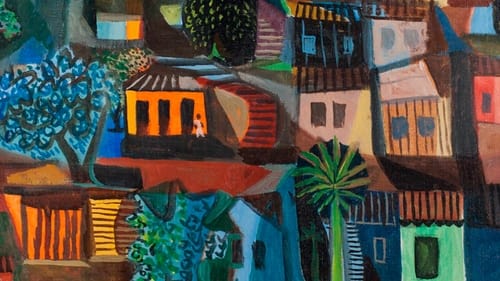
This controversial film from director Glauber Rocha records the funeral of his friend, major Brazilian painter Emiliano Di Cavalcanti.

Deca
Man leaves his family behind and moves to Nova Iguaçu, a poor and violent city in the outskirts of Rio de Janeiro. He tries to rebuild his life, but falls in love with a woman who despises him, which drives him mad.

A film that records the rehearsals of a Brazilian theatre troupe directed by Victor Garcia, and then the conflicts that break out as they tour Iran and France with a performance of Calderon's autos sacramentales. A problem with a scenery prop sparks a crisis in the group and the film chronicles this disaster.

Joana is a sophisticated, beautiful woman, so she has a choice of lovers, and destinies. She will let down Pierre, the French consul at São Paulo, and with him the frivolity of tea-parties and comfort. Her wild inner-soul will develop into the wild forest surroundings of a landlord's farmhouse. To the extent she will defend her land like a 19th century owner - of lands and men alike.

Assis
Jorge de Oliveira is an Afro-Brazilian poet who works in a publicity agency in São Paulo. Torn between his rich white lovers and his black family and friends, Jorge's situation serves as a springboard to a discussion about racial issues in Brazil.
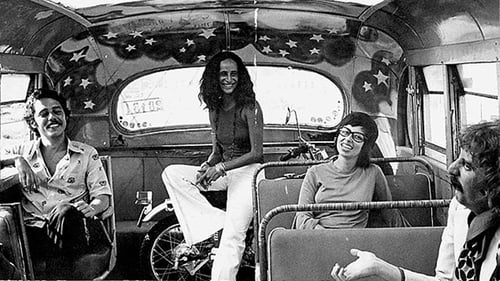
Cuíca
Music manager has to get three of his artists together for a special show, but soon finds out it isn't an easy task.

This film shows people with constant psychological and social conflicts: the violence among outlaws, conflicts between man and woman, police and society.

European couple arrive at the Republic of Maraguaya with a strange mission. But the involvement with a local man, whom they hire as an employee, will change their plans.

A beautiful young woman living in an isolated fishing community on an island falls in love with an outsider, a train machinist. But her father, a violent religious fanatic interferes.

Vampiro
Ângela Carne e Osso (Angela Meat and Bone), a young nymphomaniac, lives surrounded by delinquents, and exerts intense allure on them, dominating them all with her erotic power.

Zé Baiano

Edson is having an affair with a left-wing aspiring movie director during Brazil's military dictatorship years. He tries to get some easy money for her film, but ends up being arrested and tortured as his torturers suspect he's involved in a plot to overthrow the militar government.

Cravo Roxo

Luiz
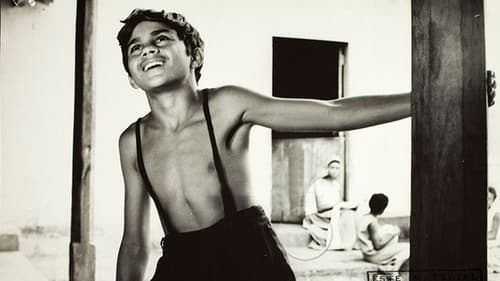
After being orphaned, a boy is raised by his grandfather and uncles, rich rural landowners, on a sugarcane plantation where he grows up, studies, learns about politics, love and disillusionment.
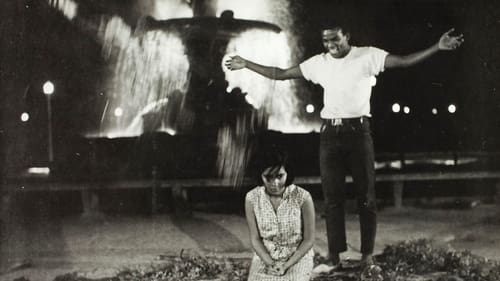
Calunga
In search of a better life, Luzia leaves the Northeast of Brazil and goes to Rio de Janeiro, looking for her fiance who went first to pave their way. Alone in the Marvelous City, she is forced to accept the friendship and protection of Calunga and, later, the company of Inácio.
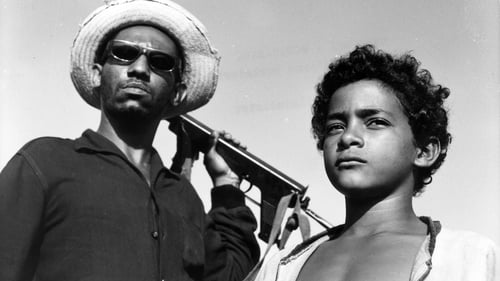
Homeless children in the slums of Rio are driven out of their temporary shelters by ruthless gangsters in this somber drama. The kids survive by shining shoes, stealing, and cutting the strings of the kites to sell them later to others. Tired of life on the streets, one boy turns himself over to the police in hopes he will be sent to reform school in a last desperate attempt to survive. This feature from acclaimed Swedish director Arne Sucksdorff appeared at the 1965 Cannes Film Festival.
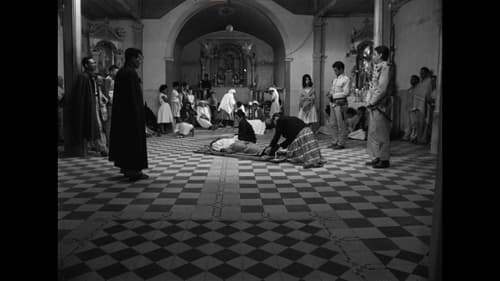
Voice
A group of armed soldiers is sent to the Northeast of Brazil in an attempt to stop a famine-struck population from invading and stealing a food deposit in the dry backlands. While the alienation and insanity of people driven to hallucination by their latent hunger is conducted by the predictions of a religious figure, a truck driver observes the situation and remains torn between his friendship with the soldiers and his revolt against the lack of government action in fighting the misery that lingers over the region.
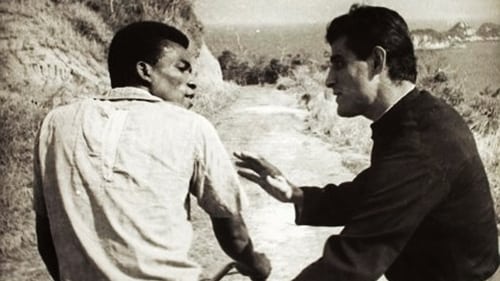
Toninho
The film follows two men living in a Rio de Janeiro slum: a black shoe-shiner and a white mill worker.

Bom Rojão

Ganga Zumba / Antão
The life of a runaway slave who founded the Quilombo dos Palmares, an outlaw community of Brazilian slaves.

Firmino
In Bahia, an educated black man returns to his home fishing village to try and free people from mysticism, in particular the Candomblé religion, which he considers a factor of political and social oppression, with tragic outcome.
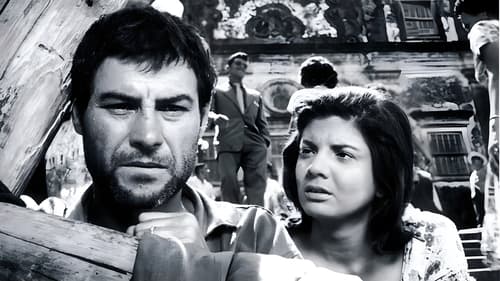
Coca, the capoeirista
Zé is a very poor man whose most prized possession is his donkey. When his donkey falls terminally ill, Zé makes a promise to Saint Bárbara: If his donkey recovers, he will carry a cross - like Jesus - all the way from his city to Saint Bárbara's church, in the state capital. Upon the recovery of his donkey, Zé leaves on his journey. He makes it to the church, but the priest refuses to accept the cross once he discovers the context of Zé's promise.

Matador de Caxias
The psychology and life of Brazilian hitmen, common in the Northeast part of the country. In this particular case, the story revolves around a young and idealistic politician from Salvador, whom the enemies are eager to eliminate.

Pitanga
Salvador, Bahia, Brazil, during the dictatorship of Getúlio Vargas. Outlaw Tonio is involved in a conflict between strikers and the police. His mistress tries to keep him from his companions, but he steals her belongings to help the persecuted. Dissatisfied, she denounces him, compromising him politically.

Chico Diabo
Made in the famous "Água de Meninos" market, the greatest popular market in Salvador, Bahia, Brazil. Salvador is revealed without prejudices, from the world of high finance up to the sordid environment of exotic cabarets.

Seu Américo
OUR DREAM is the biobiography of Claudinho and Buchecha, the most successful duo of the national melody funk in all times and the greatest icon of the genre in Brazilian popular music. The story of a friendship that becomes a force of overcoming and conquest. A film that shows how the rhythm and poetry of the periphery conquered Brazil. A real story full of fantasy. A musical feature, thrilling and entertaining, made of drama and tragedies, but also full of humor, surprises and redemption.











































